- Home
- Technical Cooperation Projects
- Index of Countries
- Africa
- Sudan
- Capacity Development Project for Provision of the Services for Basic Human Needs in Kassala
- Project News
- "We Want to Save Mothers and Babies More & More!" –Training for Medical Equipment Users–
Project News
2012-11-15
"We Want to Save Mothers and Babies More & More!" –Training for Medical Equipment Users–
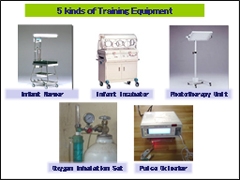
In Kassala State, the population is around 1.8 million and about 50,000 babies are born every year. However, 3,500 to 4,000 babies die before his/her one year old birthday. In spite of survival in Japan, a lot of babies are dying in Sudan. Infant mortality rate is 20 times higher than Japan.
Capacity Development Project for Provision of the Services for Basic Human Needs in Kassala (K-TOP) has been supporting the improvement of village midwifes' ability and the emergency obstetrics care. K-TOP provided several kinds of medical equipment to four pilot hospitals. The first training on medical equipment users was conducted for three days, from 5th to 7th November 2012, in order to strengthen the effective use of the equipment.
Twenty three trainees (hospital nurses, medical equipment engineers and village midwives) participated in this training, and five kinds of equipment to save baby's life, such as infant incubators, oxygen inhalation set, phototherapy unit and others were selected as the target equipment in the training.
On the first day, pre-assessment test and two lectures on "Standard Precaution for Sanitation" and "Medical Waste Management" were carried out before the equipment training. A lecture and demonstration on hand hygiene was very exciting and it became a good opportunity for all the participants to think deeply about the sanitation and the actual issue of medical wastes. Moreover, the nurses who participated in JICA training in Egypt reported a training feedback about "Women's Health and Lifespan".
On the second and third days, five kinds of equipment training and post assessment test were performed. Each training went through the standard procedures as follows;
1) Lecture → 2) Demonstration → 3) Group discussion and making "Quick Reference Card" → 4) "Quick Reference Card" presentation → 5) Summarizing the important points and Q & A.
In the group discussion and making Quick Reference Card, trainees were divided in two groups and discussed about what they learned in the lectures and demonstrations and tried to fill in the one-page format (Quick Reference Card) which describes the key points of operation procedure, presetting, post using, periodical maintenance and the other advices. Then, each group presented each Quick Reference Card and, together with the lecturers, made the final version of Quick Reference Card.
Most of the trainees were involved in the training work actively, showed us excellent group presentations, and obtained high score of post-test result. "Quick Reference Card" created in the training will be posted near the existing equipment in their workplace by the nurses. Also, these cards can be utilized for routine works and the other nurses can also utilize them. In near future, I hope that Quick Reference Card will spread and be standardized in whole hospital.
After the training, the trainees invited us a surprising thanks dinner with outdoor games at a local amusement park. We got a new energy by their warm hospitality.
Training will continue next year as well. I hope that we further assist the nurses who are fighting for saving mothers' and babies' lives.
Finally, I would like to thank for all trainees, facilitators, JICA team, Kassala State Ministry of Health and Kuwait hospital which provided a training place.
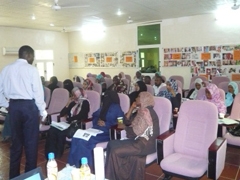 Lecture scene
Lecture scene
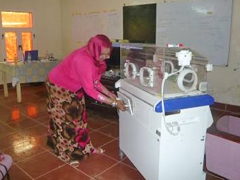 Demonstration (Infant Incubator)
Demonstration (Infant Incubator)
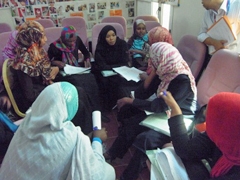 Group discussion
Group discussion
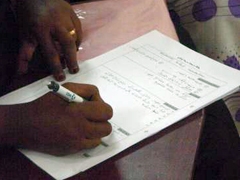 Making Quick Reference Card
Making Quick Reference Card
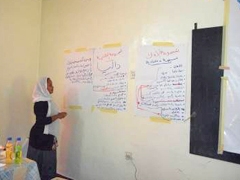 Presentation of the content of Quick Reference Card by each group
Presentation of the content of Quick Reference Card by each group
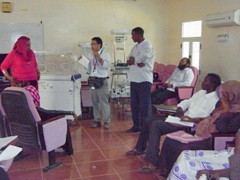 Summarizing the points and Q & A
Summarizing the points and Q & A
(Reported by Mr. Naoki Mumuro, JICA expert on Medical Equipment Management)
- About JICA
- News & Features
- Countries & Regions
- Our Work
- Thematic Issues
- Types of Assistance
- Partnerships with Other Development Partners
- Climate Change / Environmental and Social Considerations
- Evaluations
- Compliance and Anti-corruption
- Science and Technology Cooperation on Global Issues
- Research
- JICA Development Studies Program / JICA Chair
- Support for the Acceptance of Foreign HRs / Multicultural and Inclusive Community
- Publications
- Investor Relations
